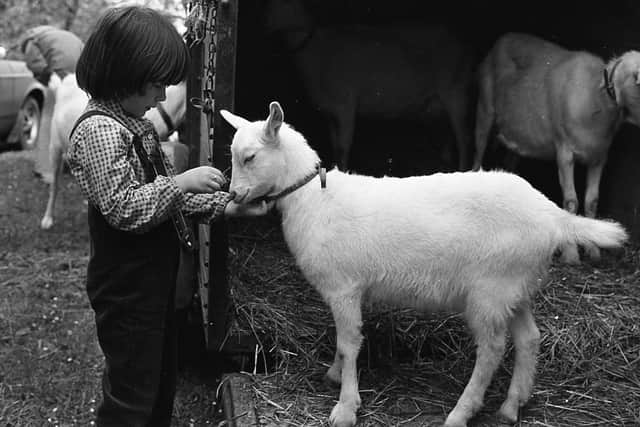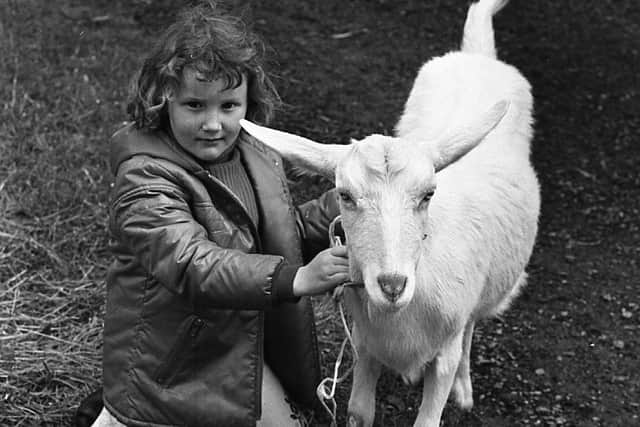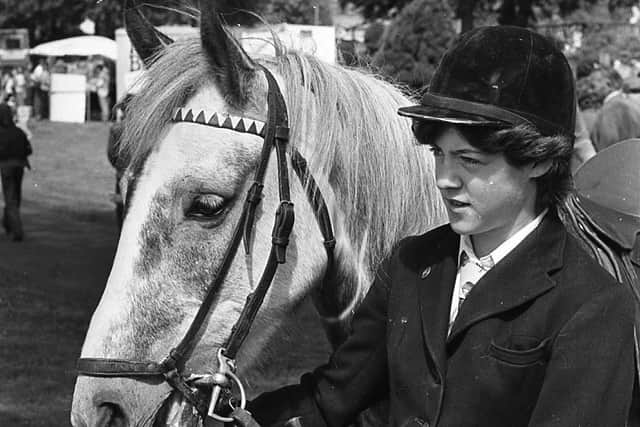Interested parties set to carefully study new White Paper proposals (1966)
and live on Freeview channel 276
The first reaction of the Ulster Farmers' Union was one of disappointment. Farming Life noted that the union's beef and sheep committees had arranged to hold a special meeting in Belfast to study the scheme more thoroughly.
Livestock auctioneers had welcomed the proposals in so far as the board would not have a complete monopoly. Said Mr George McIlrath, chairman of the Northern Ireland Livestock Auctioneers' Association: “If we have a chance to compete it is not so bad as a complete shut-out. Our association, however, will study the proposals carefully."
Advertisement
Advertisement
The Ministry of Agriculture stressed in the White Paper that the board would have no compulsory powers of purchase or sale and no power to control marketing.


Producers would remain free to sell how they chose, with the board available as their servant to sell for them or buy from then on a voluntary basis. Buyers would be free to satisfy their needs in the markets, as at present, but the board would be there to help them at will.
“The minimum of disturbance in existing arrangements is thus envisaged,” the White Paper emphasises, “and the board's task would be to act as an addition to these arrangements, to fill in the gap, to organise where organisation is necessary, to support as appropriate and to serve the interests of the whole industry.
“The proposal is the one now under most serious consideration by the ministry, and it is anticipated that all interested parties will study it arid no doubt they will make their views known. It is further intended to give Parliament an opportunity to debate the paper, following which improved proposals could emerge.”
Advertisement
Advertisement
Cost of running the board would be met by a levy imposed on the sale of all fatstock irrespective of whether they were handled by the board or not.


It was emphasised in the White Paper that the type of body considered necessary would neither be monopolistic nor purely advisory, since the one seemed to entail powers which would be too sweeping for present circumstances, and the other would be scarcely effective enough to deal with the main difficulties.
What was therefore proposed was a board somewhat of the nature of procurement agency; but with rather wider powers, a board which could buy fatstock and sell it and which could create financial incentives for any form of marketing which it favoured but particularly for dead-weight sales.
The composition and principal duties of such a board are outlined in the White Paper as follows:
Advertisement
Advertisement
The board would consist of a limited number of members appointed by the Minister under Act of Parliament. The total might, for example, be five including a Chairman and all could be specified as being independent of any trade interests.


Meanwhile, encouraging more Northern Ireland firms to “break out and attack new markets”, Mr Harry West, Minister of Agriculture, declared during this week in 1966 : “I have just returned from Denmark where I visited an International Food Fair. Northern Ireland agriculture was represented by three firms. I only wish that, as with Ulster Weeks, more Northern Ireland firms would 'break out' and attack new markets.
“We need not fear any competition on the score of quality, for although the competition in the highly competitive European Market is intense, our quality is as good as, if not better than, any,” said Mr West, who was speaking at Loughry College prize day. “Where we do fall down a bit is in variety.
“I am not asking you to grow something that we cannot produce efficiently and sell at a profit, but there are many ways of presenting the same article. One example is milk and yoghurt.”
Advertisement
Advertisement
Mr West congratulated the Milk Marketing Board on its enterprise and success so far in producing and selling yoghurt and so helping to increase the total return from our dairy industry.
“We in Ulster tend to be conservative in our habits, but we must remember that the world markets demand not only quality but variety, both of content and presentation,” said the minister.